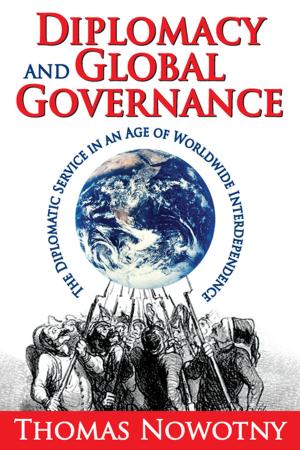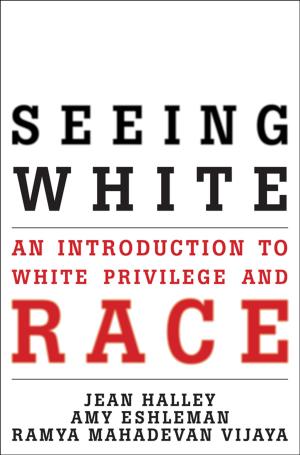The Conquest of Happiness: The Scientific Method Applied to Human Condition - Book IV
Nonfiction, Social & Cultural Studies, Political Science, Social Science| Author: | Giano Rocca | ISBN: | 9780463915608 |
| Publisher: | Giano Rocca | Publication: | May 12, 2018 |
| Imprint: | Smashwords Edition | Language: | English |
| Author: | Giano Rocca |
| ISBN: | 9780463915608 |
| Publisher: | Giano Rocca |
| Publication: | May 12, 2018 |
| Imprint: | Smashwords Edition |
| Language: | English |
The pursuit of happiness, not intended as individual, perennial, struggles to seek to remove personal unhappiness, but as the realization of a stable, conscious and shared condition, requires the in-depth knowledge of the arduous journey, carried out by the human species, for climb the steps of civilization, that is never a definitive conquest, but always in danger and with the chasm of the regression present in front of she, in the perspective of historical evolution. Some philosophers (such as Hesiod) have theorized a "golden age", stating that it was existed in the distant past of human history, understood as the age of happiness: identified by some later philosophers, such as the "state of nature", and from many religions with the "Garden of Eden". It is necessary to demythise this conception and to correctly investigate the reality of primordial societies, available to of all living species, at a certain stage of evolution. This was done in this volume, analyzing, then, the formation of more complex societies or structures, which in our view constitute, for each large organizational typology, a specific structural universe in its own right, which also constitutes, a higher level in the conquest of civilization: a higher level of civilization, characterized by a higher degree of individualisation of individuals, and a deeper expression of one's own, natural, need for sociability. These advances, which have required, to become achievable, several millennia, if not, a biological and physiological, profound mutation, fruit of the general evolution of the species, has not yet satisfied the dream of to make it achievable a society that is, actually, coherent with human nature, as well as it manifests itself in every single individual, since the current state society does not allow at all to realize the dream of an authentically happy life, and based on the conscious and responsible choices of each individual who adheres, with voluntary and conscious choice, to a specific society. The organizational modalities of such a society appear so far from the organizational and communicative abilities of contemporaries, to be supposed that we should expect a beneficial invasion of more advanced aliens, or the further evolution of cybernetics, which is able to create androids, so evolved at the point to be able of defined "sons of man", that they can teach us a new way of interpersonal communication, a new morality and a greater awareness of ourselves and of the actual historical condition in which we find ourselves living. We, however, do not despair, with the application of the scientific method, adapted for the study of human beings and social relationships, of have the chance to create a project of social organization that allows the realization of the perennial dream of human beings: a condition of conscious happiness, lasting and progressive.
The pursuit of happiness, not intended as individual, perennial, struggles to seek to remove personal unhappiness, but as the realization of a stable, conscious and shared condition, requires the in-depth knowledge of the arduous journey, carried out by the human species, for climb the steps of civilization, that is never a definitive conquest, but always in danger and with the chasm of the regression present in front of she, in the perspective of historical evolution. Some philosophers (such as Hesiod) have theorized a "golden age", stating that it was existed in the distant past of human history, understood as the age of happiness: identified by some later philosophers, such as the "state of nature", and from many religions with the "Garden of Eden". It is necessary to demythise this conception and to correctly investigate the reality of primordial societies, available to of all living species, at a certain stage of evolution. This was done in this volume, analyzing, then, the formation of more complex societies or structures, which in our view constitute, for each large organizational typology, a specific structural universe in its own right, which also constitutes, a higher level in the conquest of civilization: a higher level of civilization, characterized by a higher degree of individualisation of individuals, and a deeper expression of one's own, natural, need for sociability. These advances, which have required, to become achievable, several millennia, if not, a biological and physiological, profound mutation, fruit of the general evolution of the species, has not yet satisfied the dream of to make it achievable a society that is, actually, coherent with human nature, as well as it manifests itself in every single individual, since the current state society does not allow at all to realize the dream of an authentically happy life, and based on the conscious and responsible choices of each individual who adheres, with voluntary and conscious choice, to a specific society. The organizational modalities of such a society appear so far from the organizational and communicative abilities of contemporaries, to be supposed that we should expect a beneficial invasion of more advanced aliens, or the further evolution of cybernetics, which is able to create androids, so evolved at the point to be able of defined "sons of man", that they can teach us a new way of interpersonal communication, a new morality and a greater awareness of ourselves and of the actual historical condition in which we find ourselves living. We, however, do not despair, with the application of the scientific method, adapted for the study of human beings and social relationships, of have the chance to create a project of social organization that allows the realization of the perennial dream of human beings: a condition of conscious happiness, lasting and progressive.















